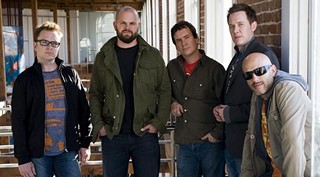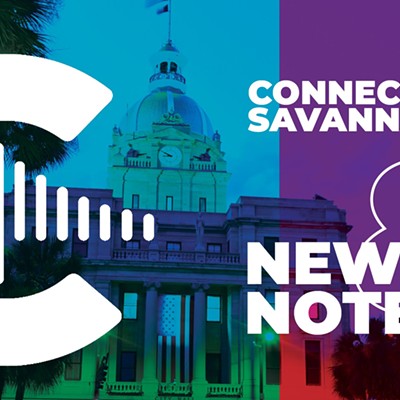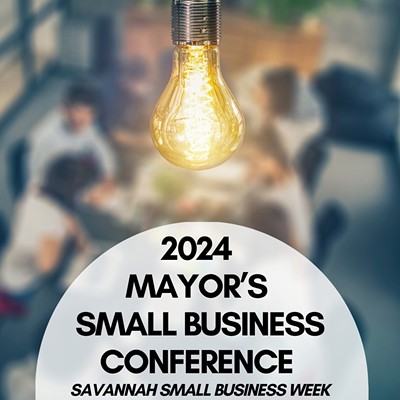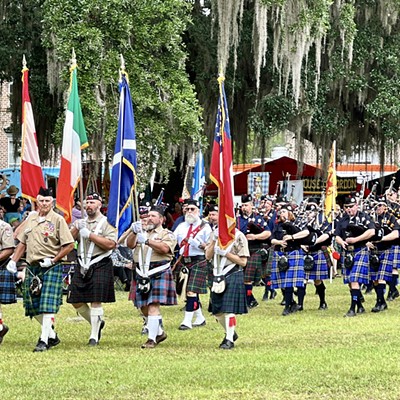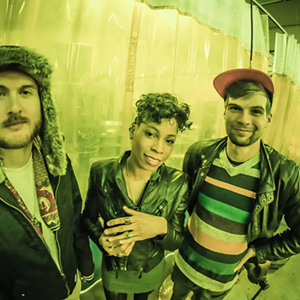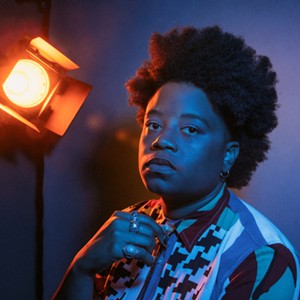Among the epicurean delights available from street vendors in New Orleans is a noodle dish known as ya–ka–may. It involves hard–boiled eggs, a variety of meats, seasonings and whatever else is handy to make up a tasty, Big Easy–centric gumbo.
Ya–Ka–May is also the title of the new album from the New Orleans band Galactic, which will play (with G. Love & Special Sauce) SCAD’s “New Alumni” graduation concert May 28 in Forsyth Park.
Gumbo is, not to be too precious about it, Galactic’s forte. The instrumental funk band combines elements of jazz, R&B, brass band, gospel and even hip hop into its multi–ethnic musical stew, creating a hip–shaking sound that’s contemporary (and visionary) and still unmistakably NOLA.
The band – bassist Robert Mercurio, drummer Stanton Moore, guitarist Jeff Raines, keyboard/synth player Richard Vogel and saxman Ben Ellman – recruited a who’s who of New Orleans musicians for the project.
Among them: The Rebirth Brass Band, Big Chief Bo Dollis, Allen Toussaint, Walter “Wolfman” Washington and the smoking–hot R&B vocalist Irma Thomas.
The more up–and coming artists were trombonist/singer Corey Henry (who’ll be joining Galactic for the SCAD performance), Trombone Shorty, John Boutt , Josh Cohen and Scully and Glen David Andrews. The band also recorded with vibrant young “bounce” (New Orleans hip hop) performers Cheeky Blakk, Big Freedia, Katey Red and Sissy Nobby.
Like so much of the New Orleans experience, Ya–Ka–May – and Galactic itself – is one big par–tay, comprenez–vous?
Tell me about the genesis of Ya–Ka–May.
Robert Mercurio: It’s an album that we’ve always kinda wanted to make. We’ve always seen ourselves as a rhythm section that can play with many different vocalists and whatnot – we started out that way, and we’ve always been that way. The last album we did, From the Corner to the Block, had a lot of our favorite MCs, and that was another album we’d always wanted to make. It just seemed time to do one that focused on our favorite New Orleans people.
We didn’t get everybody we intended on getting, but that’s how it goes. And we probably picked up some people we didn’t think about. Like we did one track with Cheeky Blakk, and then that led to another hip hop artist. We were really happy with the cross–section of people that we got. And that it wasn’t too generic or predictable.
The sense I get from the New Orleans music scene is that it’s all very interactive, that everybody knows each other.
Robert Mercurio: Exactly! It spreads pretty well. It’s a very healthy relationship between the musicians – between young, old, black, white, whatever. Everybody’s very connected. We hang out, we talk, everybody tells what’s going on with each other, and tries to help each other out.
What’s the challenge for you to add vocals? Is that something you’d like to do more of?
Robert Mercurio: It is a challenge, for sure, which is exciting. Allen Toussaint showed up with way more of a complete song than the other people. Some of the others showed up, they kind of gave us what they had, and we worked around that and made it into a song – found the hook, or something, and made it work. I would say that the Allen Toussaint song and the Irma Thomas song, those were more completed songs when they came to us.
After you get the song, then you try to make it something unique sonically and musically. Then that’s a challenge as well. That album went through many different versions before it ended up where it is.
With the Allen Toussaint song, we didn’t want to just go down the route of like “What would Allen Toussaint do?” We didn’t want it to sound too retro. It wouldn’t be much of an accomplishment to just get Allen Toussaint on your album and then just make it typical of one of his.
Same thing with Irma and any of those people; we didn’t want to just do what they do already. The challenge was to try to make it something unique.
Define bounce for me.
Robert Mercurio: It’s generally something that comes out of the projects in New Orleans, and is a very neighborhood–oriented kind of music.
It’s basically a call–and–response style of rap that’s loosely based on a Mardi Gras Indians chant kind of thing. And it’s usually very fast, rapid–fire. And it’s usually performed over a certain sample. That was one of the things we did differently – we didn’t do it over the sample that you hear over every bounce song. We took their vocal style and we changed the music, and changed the approach of it. They usually don’t have choruses and stuff like that; typically it’s just a very linear, call–and–response chant, real raw, almost punk rock.
Many New Orleans musicians who take this stuff around the world say they almost consider themselves ambassadors for the city. Do you feel that way?
Robert Mercurio: I think that maybe more when we’re abroad. Like we just did a tour of Japan and Australia. When you’re over there, and you’re a band from New Orleans, you think people listen to it and think “This is what New Orleans is.” You do take that into account a little bit.
We’re doing newer, breaking–ground stuff, and we’re just trying to create something unique within that. We don’t we’re the torchbearers or anything like that. We’re just doing what we’re doing, and we just happen to be one of the most active bands.
You also play the jam band circuit, which I imagine is an audience that might not be too familiar with the history of New Orleans funk.
Robert Mercurio: I’m sure we’ve helped educate some of those people, onto the legends and the history of New Orleans music. I hope we do, you know?
Galactic
With G. Love & Special Sauce
Where: Forsyth Park Bandshell, Forsyth Park
When: At 6 p.m. Friday, May 28
Admission: Free
Artist’s website: www.galacticfunk.com

